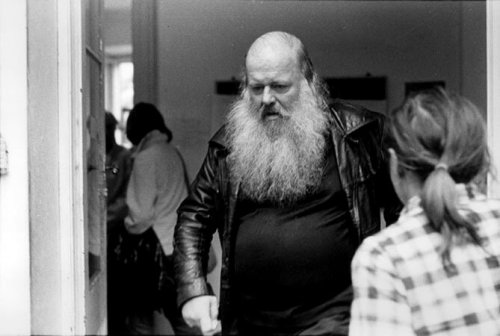David G. Cooper: The Anti-Psychiatry Pioneer

The founders of anti-psychiatry are David G. Cooper, R.D. Laing, Thomas Szasz, and Michel Foucault. This anti-psychiatry revolution took place in the sixties and its main interest was to denounce the gaps, theoretical problems, and abuse in the practice of psychiatry.
Nevertheless, David G. Cooper, who wrote several important works that gained importance in the anti-psychiatry revolution, studied psychiatry himself. Then, he worked at various mental hospitals in London in direct contact with patients who were previously diagnosed with schizophrenia.
Due to his experience and the influence of other thinkers, his psychiatry criticisms remain unchallenged. Cooper was the first to use the term “anti-psychiatry” or “contra psychiatry”.
David G. Cooper and Anti-Psychiatry
David G. Cooper was born in Cape Town, South Africa in 1932. According to his own words, his family was “common” and he had no major problems during his childhood and adolescence.
Cooper studied music but later discovered that medicine was his true vocation. Therefore, he switched careers and became a doctor in 1955.
At the time, apartheid was raging in South Africa. Cooper, an anti-segregationist, practiced medicine attending blacks in exclusive medical centers just for them. Later, he moved to London where he worked as a psychiatrist in several hospitals.

David G. Cooper married a French woman, with whom he had three children with. He then had a sporadic sentimental partner, Juliet Mitchell, who was a leader of the Anglo-Saxon feminist movement. Mitchell was also a specialist in Lacanian psychoanalysis (Lacanianism). Their relationship greatly influenced Cooper.
His Experience in Villa 21
David G. Cooper worked in a mental hospital in London that had a famous program created in Hall 21, hence the name “Villa 21.” During his time there, Cooper treated many schizophrenic patients. This experience led him to depart completely from psychiatry.
Cooper began to question the approaches of Eugen Bleuler, who came up with many of the popular psychiatric treatments of the time. Cooper promoted the idea that schizophrenia wasn’t a mental illness but instead an experience or passage.
In other words, to him, madness was a kind of mental trip similar to those induced by psychotropic medications that one could always come back from.

David G. Cooper indicated that there are three types of madness:
- Dementia. A form of “schizophrenia” that stems from disastrous social conditions some people have to live in.
- Inner trip. The rupture with previously alienated experiences and the new structuring of a personal life project.
- Social dementia. Corresponds to a disorganized response to ill environments. Madness is, at times, the only possible way out of said environments.
Anti-Psychiatry
David G. Cooper conducted daring experiments at Villa 21. In fact, he stopped giving medication to several patients and interacted with them. In his own words, “They went to hell and back”.
Furthermore, Cooper believed that if they had the chance to return to certain archaic zones within their being, they would improve. Although his methods were controversial, he proved that schizophrenia could, in fact, be cured.

Since then, David G. Cooper became a world leader in anti-psychiatry. He worked hard to defend his thesis with R.D. Laing and Herbert Marcuse.
Later on, he settled down in Paris where he worked along figures such as Michel Foucault, Gilles Deleuze, and Robert Castel in favor of human rights.
Little by little, Cooper became an iconic figure. The revolutionary man scandalized and fascinated people at the same time.
David G. Cooper never stopped trying to break traditional thought patterns. He died at the age of 55 and left an enduring legacy behind.
This text is provided for informational purposes only and does not replace consultation with a professional. If in doubt, consult your specialist.








